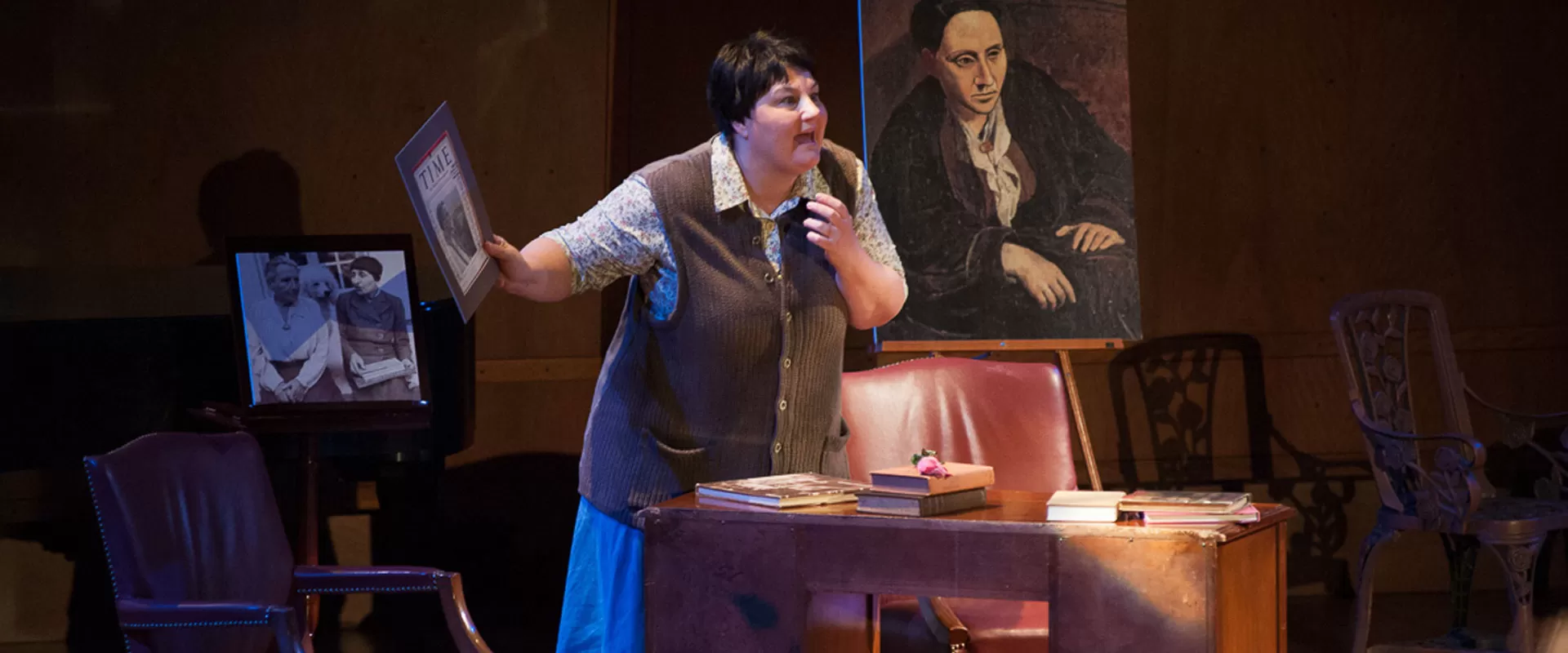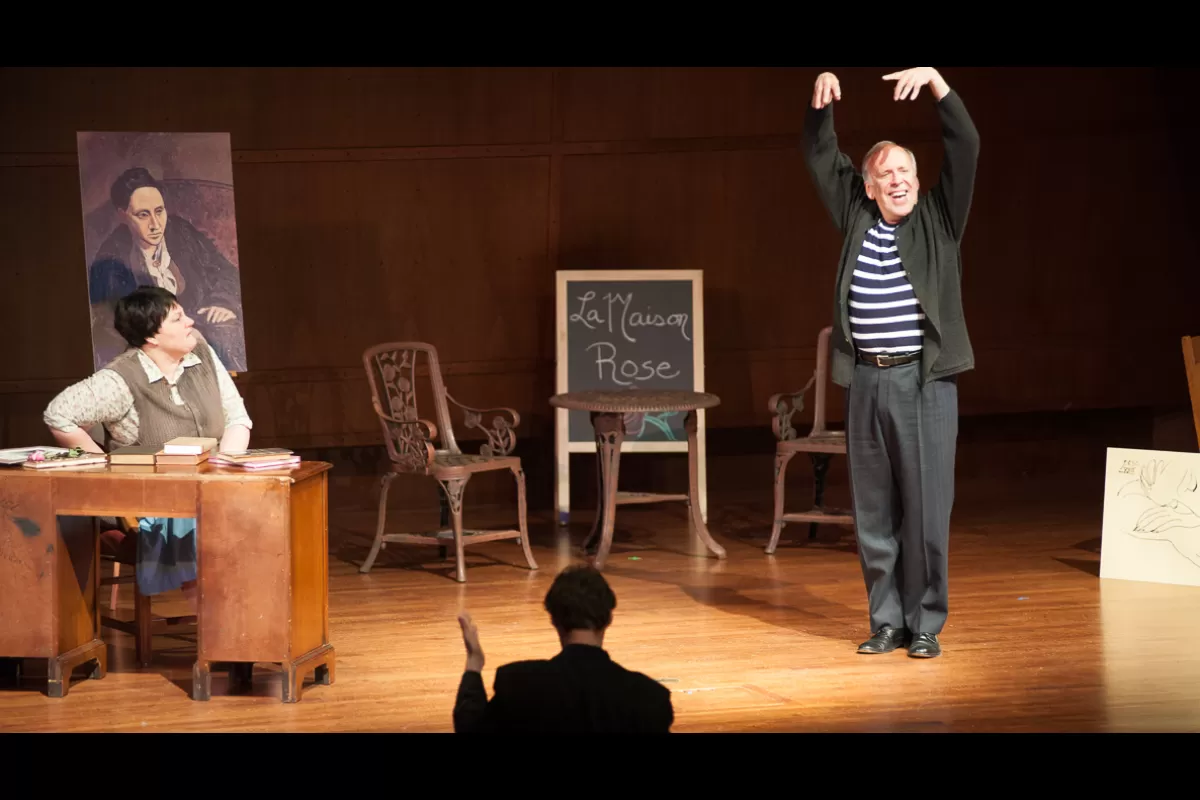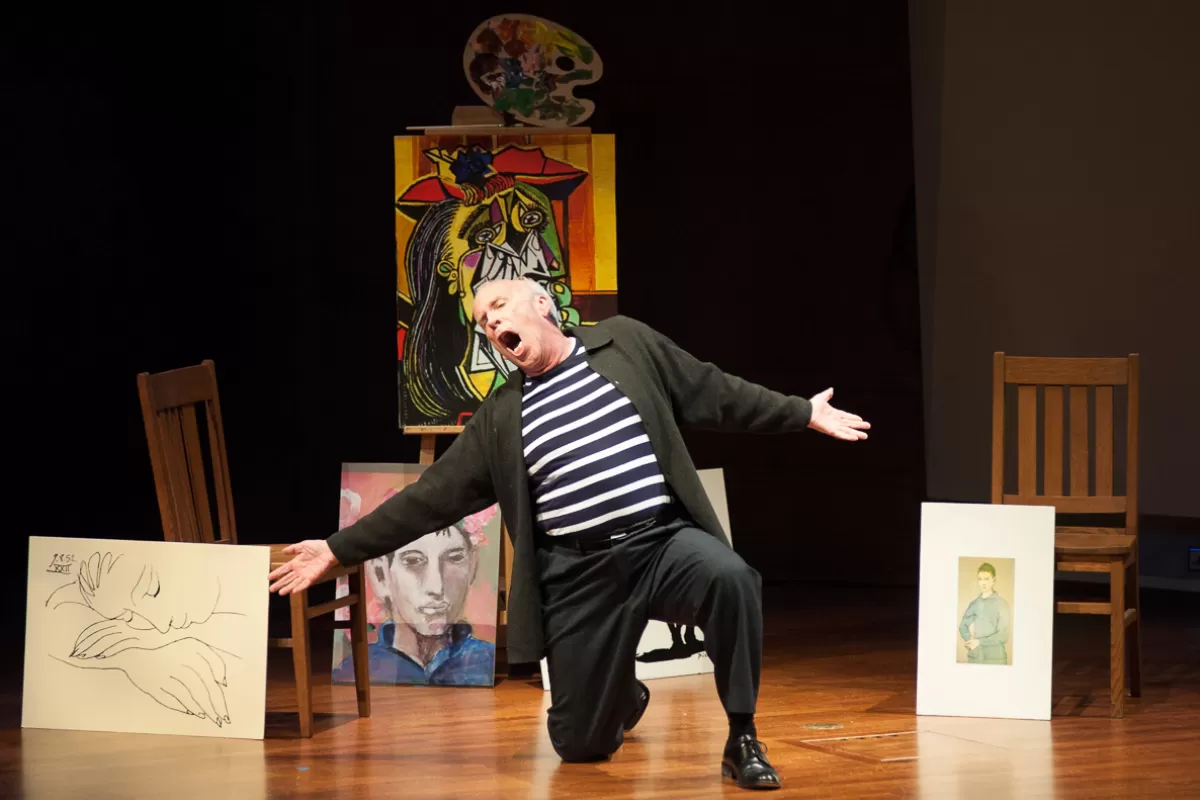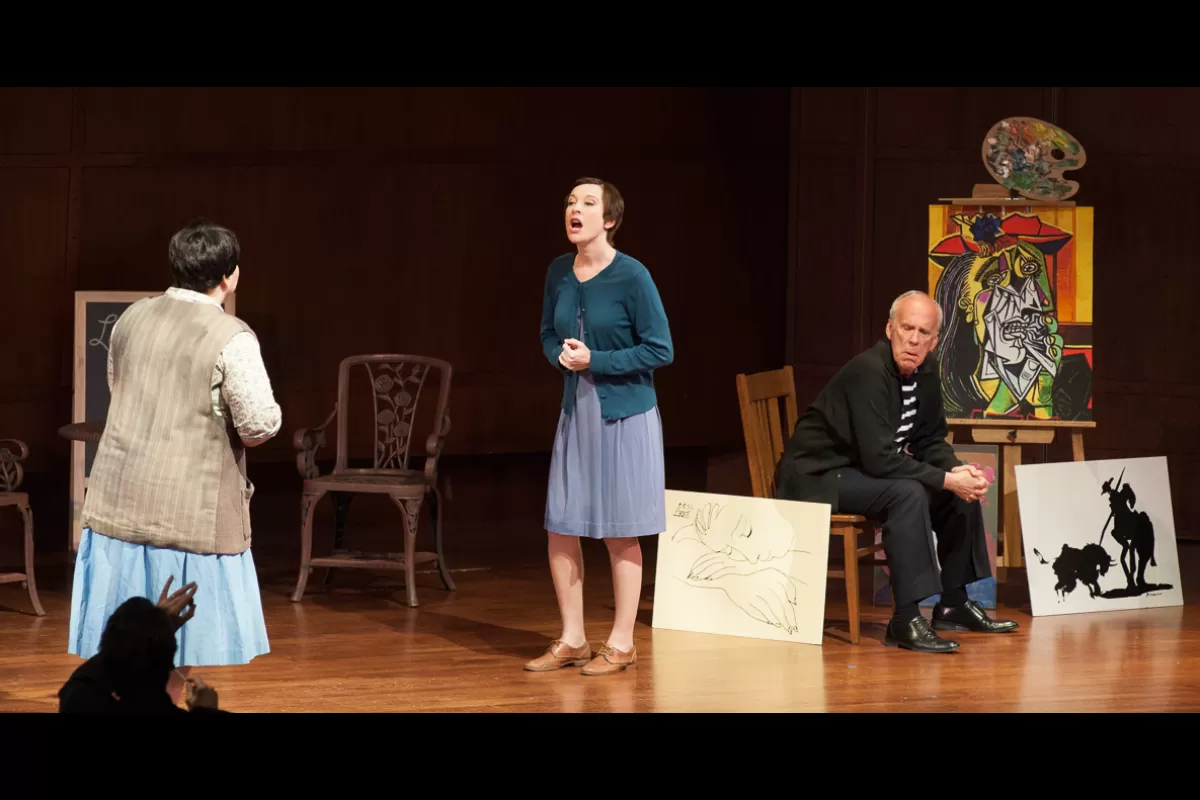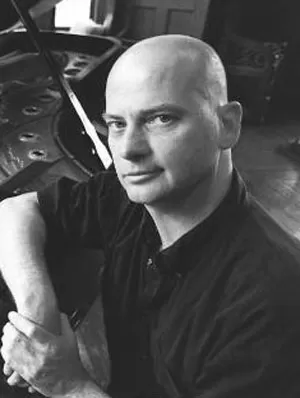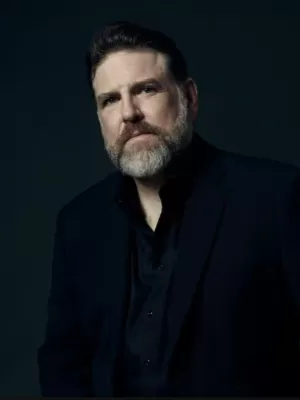Pablo Picasso and Gertrude Stein meet again – and argue about art and life – in After Life, a MOR-commissioned opera by Tom Cipullo.
Pablo Picasso and Gertrude Stein were towering artistic figures of the 20th century and among its most influential. Stein was one of Picasso’s early advocates. He painted a portrait of her that has become widely known, and she wrote a memoir about him. They maintained an unusual friendship and exchanged correspondence from 1906 until 1944. While both were iconoclastic creators, Stein and Picasso held starkly divergent political views and responded in strikingly different ways - in their lives and their art – to the Second World War and the Nazi occupation of Europe.
Music of Remembrance commissioned composer Tom Cipullo’s chamber opera, After Life, as part of the organization’s continuing commitment to remembering the Holocaust through new music that challenges audiences to re-examine conventional perspectives. In the opera, Picasso and Stein meet again in a posthumous debate filled with both passion and humor. They argue over the moral responsibilities of artists to address the evil they see in the world. They confront each others’ weaknesses, and their own, in succumbing to vanity and ego.
American composer Tom Cipullo has been drawn before to artistic themes that pose difficult moral questions. His highly-regarded 2006 opera, Glory Denied, tells the story of America’s longest-held Vietnam prisoner of war Jim Thompson. Allan Kozinn wrote in the New York Times: "How is this for a story with operatic potential? A prisoner of war held for nearly a decade returns home to find that his wife has moved on, his nation has changed beyond recognition, and he is unable to find his bearings in the society he fought to defend. It is Monteverdi's ‘Ritorno d'Ulisse in Patria’ in reverse: the story of the returning warrior, but in this thoroughly modern version, everything has gone wrong, and redemption is out of reach.” Anne Midgette, in the New York Times, described the work’s lyrical richness: "It is tonal, melting into aching lushness…propelled by driving Bernstein-like syncopations where different versions of the same truth converge."
For After Life, Cipullo collaborated with librettist David Mason. Mason, also a gifted and widely-published poet, described his vision for the Picasso-Stein encounter: “I realized that these two estranged friends, two major artists of the twentieth century and, arguably, two outsized egomaniacs, would provide me a great opportunity to explore the culpability of artists in Vichy and occupied France. What is the position of art in a time of war? How does art respond to political and military disaster? And what can artists possibly do in the face of such massive evils as Nazism and the Holocaust?”
